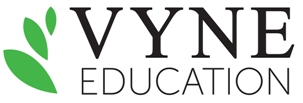Printer Friendly Copy
The Clinician's Survival Guide to Suicide & Homicide from Transformation to Recovery
VYNE

Format(s): Live Seminars
Discipline(s): Counseling / Social Work / Psychology
Contact Hours:
Registration Fee: $179
Objectives
- • Identify several warning signs of at-risk adolescents, young adults, adults, middle-aged, and senior persons
- • Explore four theories, approaches, and methods of suicide and homicide risk intervention
- • Recognize medication lethality, doses, and combinations
- • Analyze the most crucial suicide and homicide assessment queries
- • Incorporate the six research-based components of the individual wellness recovery process, utilizing real-life scenarios
- • Discuss options for strengthening patient social support networks and accessing crucial mental health services
Description
Assessing & Treating Dangerous, At-Risk Clients
You don't need a breakdown of the statistics to know that suicide and homicide are rampant in our world. Violence in our own homes and daily public venues has amplified the urgency of serious questions among the public and professionals alike about viable options and possible solutions for how to handle those who could hurt themselves and/or others. As mental health practitioners, we must lead the way to properly assess, treat, and intervene as necessary for at-risk clients, yet many mental health professionals are not fully prepared or thoroughly trained for such critical tasks.
This in-depth course provides all the latest research and evidence-based tools to ensure your ability to prevent harm and promote health for dangerous, at-risk patients with successful short– and long-term outcomes. Gain tried and true assessment methods for effective psychological triage and recognize vital components of risk and danger in clients. Practical intervention methods are discussed for effective treatment of at-risk patients spanning various cultures/ethnicities, psychopathology, mental health problems, dysfunctional relationships, as well as co-occurring and personality disorders. In conjunction with pinpointing the requisite evaluation, intervention, and wellness recovery tools needed to meaningfully address and treat dangerous clients, you gain two hours of ethics by examining the common clinical practice challenges, mistakes, and scenarios. Don't wait for another tragedy to strike; be prepared to defuse any harm that clients might do to themselves and/or others.
Date And Locations
Provider does not currently list available courses on RehabEdge.